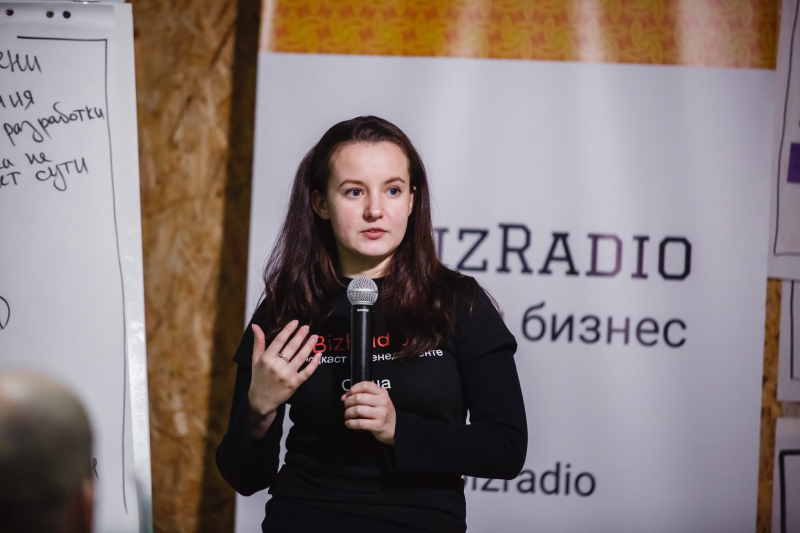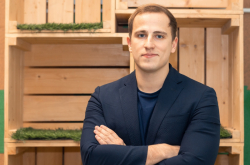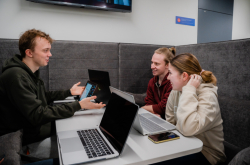Studies and first career steps
Alexandra, you’ve received both your Bachelor’s and Master’s degrees at ITMO University. What led you to you choose ITMO?
I first got into another university, but one of my classmates got into ITMO. He spoke highly of the university, and I myself had always thought it a great institution that offers courses in programming and related fields. That was why I wanted to study there too. In 2009, I passed the entry exams and began studying at ITMO.
ITMO really helped me in terms of networking, I am still in touch with a lot of my former fellow students and our professors. The university has also equipped me with fundamental knowledge of programming and IT in general, which continues to be very useful in my work.
I opted for “Technological Entrepreneurship and Innovation Economics” for my Master’s degree. I really liked the program’s description: it stated that there would be guest lecturers with a background in business and consulting, who also teach at universities abroad. I grew very interested in the program and my expectations were completely fulfilled.
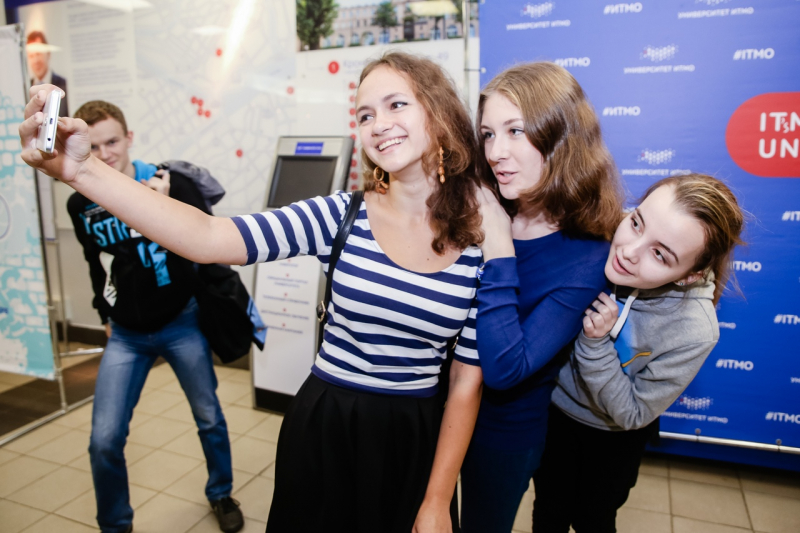
Can you recall a crucial professional skill or a life lesson that you learned during your studies?
My thoughts went straight to that one time our professor told us not to get upset when we weren’t chosen for the group of potential competitive programmers. She explained then that competitive programming requires a very peculiar skillset, not the same one that is needed for commercial development. When you take part in a contest, you have to solve problems as quickly as possible, whereas in commercial development you need to write code that can be read and supported by others. It is not the same as finding the quickest possible solution to a problem. This conversation stuck with me.
How did you get your first job in IT?
It coincided with my transfer within the university. I had originally got into “Optical Engineering”, but then realized there were not so many opportunities to start working as a specialist in this field while I was still a student, and getting experience was very important for me. I saw that there were many more IT job offers which led me to transfer to another department. At the same time, I started looking for a job.
I used HeadHunter: I created a CV and filled in all the details that I thought might interest a potential employer. I wrote about the contests I took part in at school and about my personality. I even indicated what kind of IT-related books I was reading; the fact that I was interested in networks and that I studied them in my free time. I think the latter was exactly what drew my employer’s attention. I got an interview invitation from Motorola Solutions, a branch of the famous Motorola company created when it split into “Mobility” and “Solutions”. In the interview I got a question on what I read, we discussed the basics of computer networks. The interviewer noted my good command of English, which came in handy later as it was the main working language at the company: all of the inside communication and project documentation was in English.
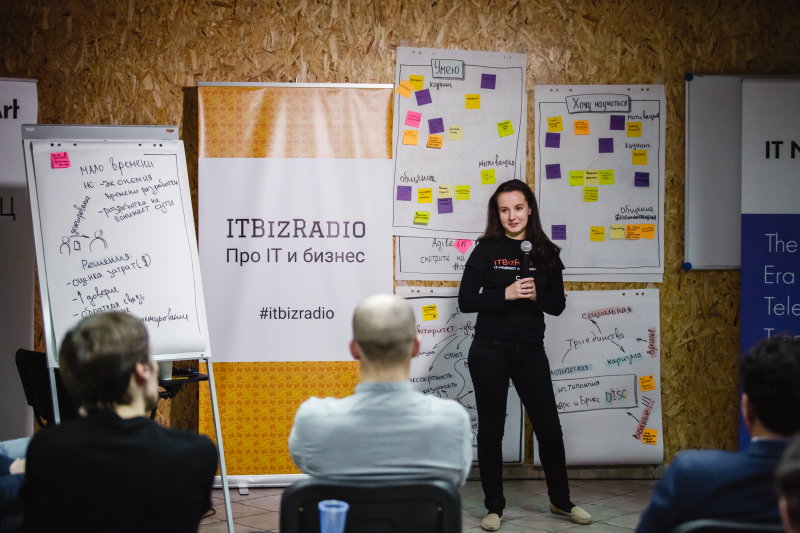
I spent three years at Motorola Solutions until I got my Bachelor’s degree. First testing software as an intern and then as a technical writer compiling project documentation in English. After some time I got offered a position of an assistant quality manager and processes manager, which led to me combining these two roles at the company. Over these three years, I was only working part-time, for 20 hours a week, so it was possible for me to both work and study. It was not easy, I had almost no free time, but I knew that getting as much experience as soon as possible was more important. My salary was relatively low at first, but I am glad that I didn’t go looking for quick money that I might have earned by working out of the field of my specialization.
Moving to Moscow
As far as I know, you were born in St. Petersburg. However, you moved to Moscow after getting your degree. Why?
Yes, I was born in St. Petersburg and moved to Moscow in 2017. Not long before my move, I got promoted from a process manager to a product manager. It meant that I now was in charge of deciding what to do instead of simply managing the resources to meet a certain deadline. When I studied the market in my new position, I saw there were around four times as many job offers in Moscow as there were in St. Petersburg with the companies being larger. And in general, in Moscow there are more companies developing their own products instead of tailoring to clients. I started applying for jobs in Moscow and doing interviews over Skype. Eventually, I landed a job and moved to the capital.
Is there a certain ranking of university alumni in Moscow? Does it matter which university you graduated from?
It doesn’t really matter, because there are so many people from different cities and even different countries. For example, now I work with people from Kazakhstan and Belarus. I think you are not likely to hear which universities are better – those in Moscow, St. Petersburg, Tyumen or Ekaterinburg. The employers usually look at your professional skills first and then check your degree. Your university’s “brand” might be important when you are applying for your first job, but it gets less important afterwards compared to your professional experiences.
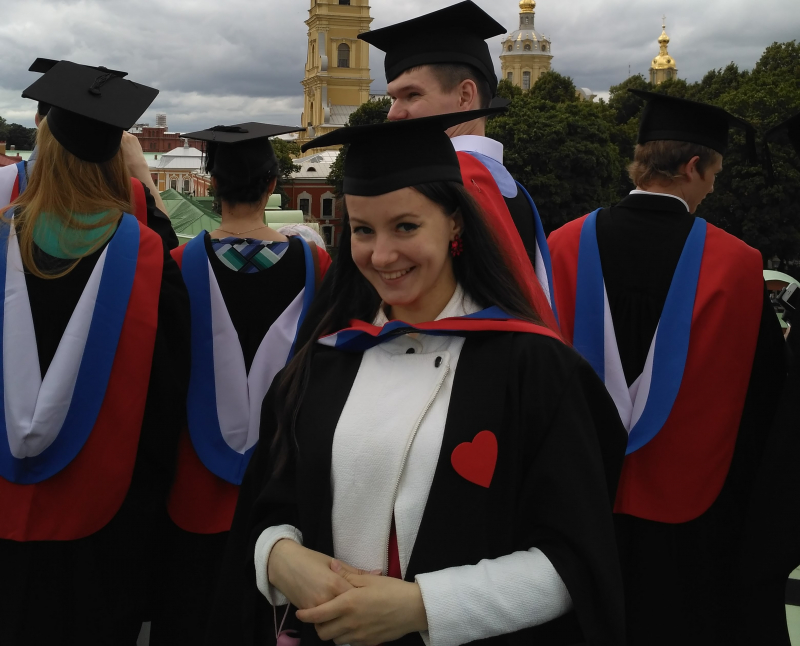
People from Moscow tend to value their universities: Bauman Moscow State Technical University, Moscow Institute of Physics and Technology, Moscow Engineering Physics Institute and Lomonosov Moscow State University. But I believe they do it based on their experiences and not due to their snobbism. If a recruiter has never been to a city outside Moscow, then they often have no base on which to form their judgment about regional universities apart from what their potential employees can tell them.
How are the corporate and business cultures in Moscow different from those in St. Petersburg?
There is a lot of outsourcing going on in St. Petersburg and with a reasonably low level of original product development. I often take part in conferences and talk to my colleagues, I see that there are some product manager positions in St. Petersburg, I could work from home, but all in all, there are not many opportunities of this sort.
In Moscow there is a lot more to choose from, almost every major Russian company has its headquarters here and even international companies are represented here. There are also more IT companies creating products on state orders. If you are interested in product design or development, especially the business side of it, my advice would be at least to check the Moscow job market.
Are there any differences in the way employees are treated in Moscow, for example, in terms of the perks they get?
There is more money in Moscow, so consequently, there are more perks and bonuses at the office. For instance, sometimes it means massaging chairs at work and a free gym a few floors below.
Sometimes employees from Moscow are treated differently than those that come from other cities. I heard it from my Moscow colleagues that programmers here are better qualified than in any other region. I can’t agree with that, because the education has to be at least equally good in St. Petersburg, Nizhny Novgorod, Novosibirsk and Kazan, there are major technical universities in these cities. I also believe that a great professional can come from anywhere as long as this person is hardworking and talented.
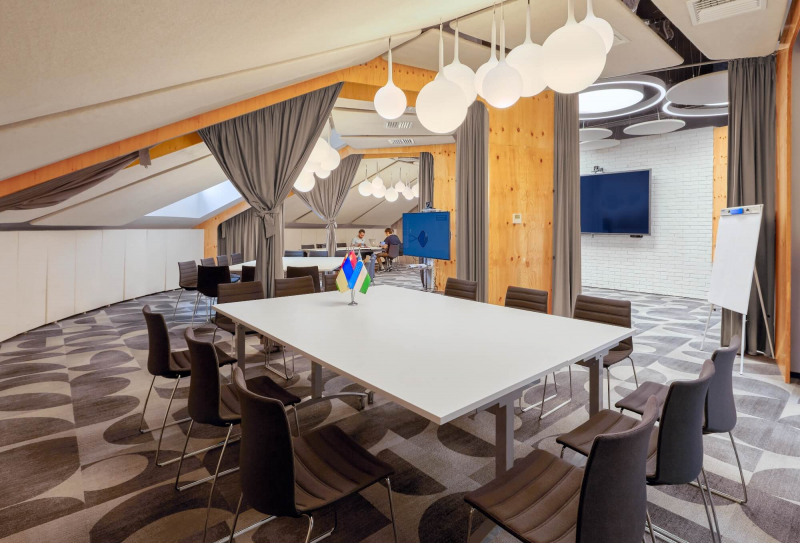
One other thing to mention is that companies in Moscow often try to balance between hiring highly qualified professionals and the salary they are going to receive. Thus, a programmer working from home in, say, Kaluga can do exactly the same thing as his Moscow-based coworker but will earn less. It is not fair, but that’s the way market works: if people in theoretical Kaluga agree to work for less, then so it stays. Sometimes you have to move to Moscow to actually get a pay rise.
If we come back to working conditions, they depend on the company, but there still are some general trends. Life simply has a different pace in St. Petersburg. I have met a lot more career-oriented people in Moscow, a lot of them work overtime. As far as I can remember, St. Petersburg is a little more settled, more relaxed with people thinking more about their families and comfort.
What surprised you most in Moscow? What did you have to get used to?
It wasn’t hard to adapt, I like it in Moscow. Although the incredible amount of cars and the associated air pollution in the city center are nothing to be happy about, that is simply the downside of living in a big city.

What struck me most was public transportation. It is very developed with the subway system not only wide but also dense, and the ground transport having its own line. You can get anywhere really fast.
One other thing you need to think about before moving here is the housing prices. They are much higher here than in any other city. You should calculate your budget before moving here and check the housing prices in advance. It can happen that you would have to reside outside the Moscow Ring Road first, and not everyone is ready to spend more than an hour commuting to work. It might be that what you can afford in Moscow will make you reconsider your move when compared to your current living standard.
Working at MTS
How did you get into MTS, your current workplace?
I posted a CV on HeadHunter and received a call from MTS inviting me for an interview. I passed it and started working. I had been considering going back into telecommunications for some time back then, I had always liked this field, so I am glad that my wish came true.
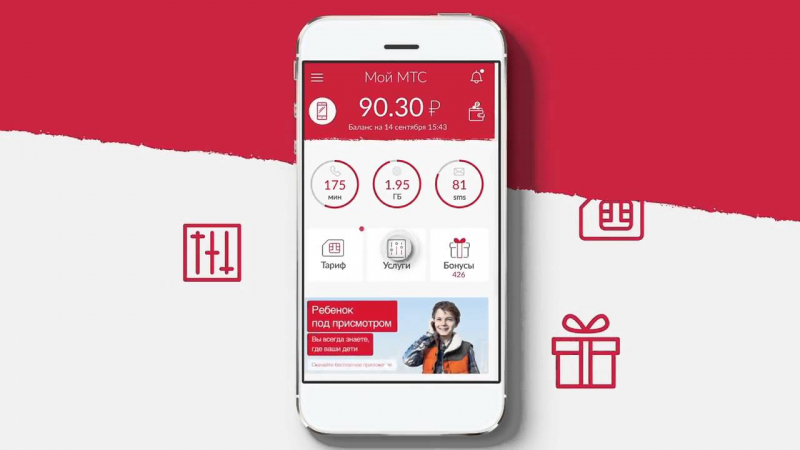
What are you working on these days?
I am in charge of one of the company’s online displays strands in the “My MTS” mobile app, on the official website and in the online account.
How is working in telecommunications different from any other job in the IT sector?
If by the IT sector we mean software development, then telecom is relatively close to “normal” programming but it also has a hardware side to it. In that sense, anyone potentially interested in developing software for telecommunications will find it useful to know everything about communication networks and other telecom-devices.
Sexism and discrimination in IT
Sexism and the problems women face at work in primarily male environments are a hot topic these days. Does it happen in IT too?
Young women in IT might have to face a prejudiced attitude very early on when they are only choosing their career: when they opt for mathematics or informatics at school or at university, they might be misunderstood at work and by their family members.
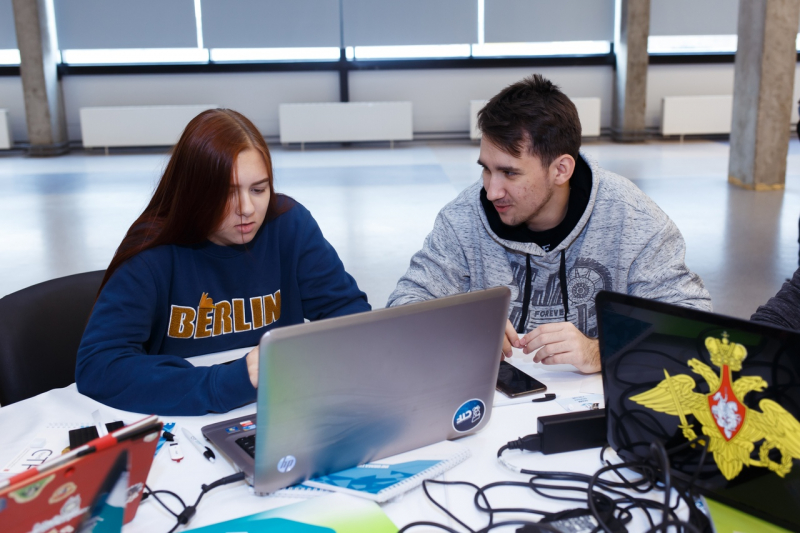
It is especially hard for those who are programmers, which many consider to be an exclusively male profession. In my experience, women who work on middle-range software development positions and above are high profile specialists who succeeded in not only demonstrating their professional skills but also their ability to handle pressure including tactless remarks at the workplace.
Any woman regardless of her career sooner or later gets asked about her personal life during interviews. It can be a question about her plans to have children or a question about her relationship status. Some women tell the truth, some are taken aback by such questions and some try to conceal the truth from their potential employer.
All in all, the more experience a woman has and the higher up she is on a career ladder, the less light her gender receives. People start looking at her professional and personal qualities first.
How can one battle such things?
You have to realize that people can make comments on any topic, not only the supposed ill career choice of a woman in IT. The best way to react to that is the way we react to any other things done by toxic people: you should tell them straight away that you don’t like it and set your boundaries.
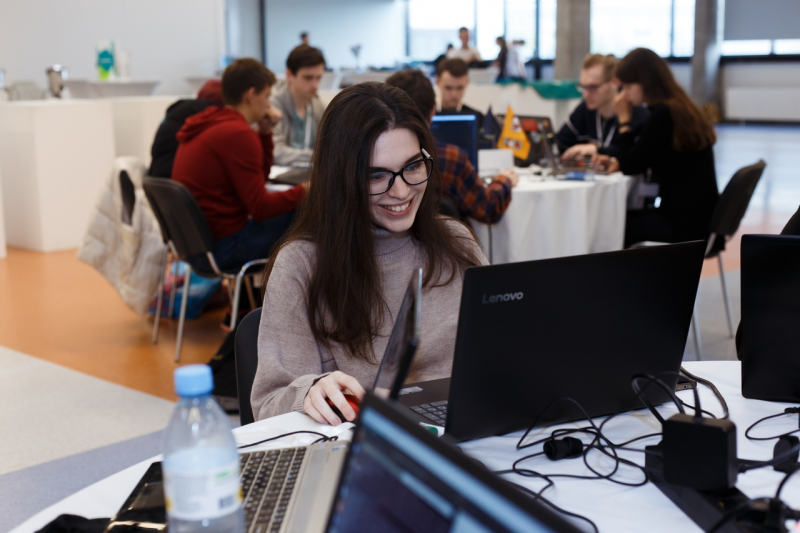
Sometimes this aggression can be a consequence of mistrust or prior traumatic experience. This mistrust can go away with time (for example, after a woman joins a new team) and the relationships change for the better. If a woman has a hard time going to work primarily because of these difficult relationships, then it might be a better choice to find a different position after a fair amount of attempts to improve the situation. It is easier to change yourself than to change others, and your mental health is more important.
If a woman has overcome the resistance and has been working as a programmer for a number of years, she is typically a great professional, I’ve met a lot of such people. It is usually harder at the very start of your career.
Hobbies and mentoring
As far as I know, you and your friends run a Youtube channel. What are your videos about?
Yes, we have a channel about IT and business. We film interviews and organize events in St. Petersburg with online-broadcasts. Thanks to it we are constantly meeting new people and exchanging our experiences. It is something in between a job and a hobby. We like our job and we like talking about it.
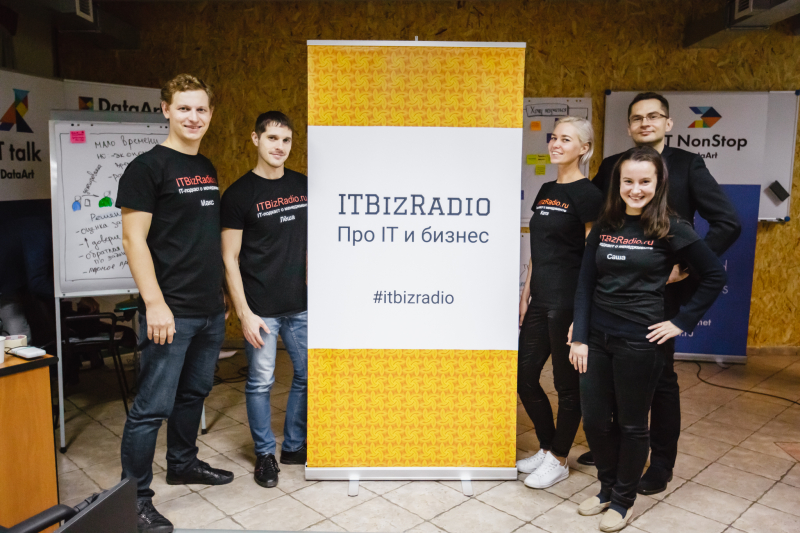
How does the channel help you professionally? Can you say that now your colleagues know you better?
This channel is an opportunity to be in the hustle and bustle of the industry, to talks to its leaders and be recognized by the professional community.
Publicity is very important in the modern world. If a recruiter or a potential partner can find something about you on the Internet, it raises the level of trust and helps to establish the initial contact, start a conversation.
Our Youtube show is not so popular yet for its hosts to be recognized in the street, but it helps us to keep in touch with those who already know us. They can ask for advice or recommendation. Your acquaintances can now mentally make a stronger connection between you and the work you do, meaning that this connection can come up whenever there is a professional need. For example, people often ask me for help with finding a job or an employee, and I have already connected several people to their jobs.
What was your most interesting episode?

The most memorable one for me was when we interviewed Askhat Urazbaev, a top specialist on software development for flexible business technologies in Russia. I think I remember it most because it made me realize how many different people you can get to know via a Youtube channel: there are not so many people who will say no to an interview. For a lot of our guests it was important to simply get some media coverage, even if it was on a small channel. It means that our episode will come up whenever somebody types their name into a search engine. And this improves trust in their personal professional brand.
One of our guests got a promotion right after we interviewed him because his superior was able to show this talented and skilled employee to the top management team. Two more of our guests started their personal blogs which we actively encourage.
You have recently joined the ITMO University’s mentorship program that connects successful IT specialists to students. How did you join it?
As soon as I received an email about the program, I signed up and soon my application was approved.

In a sense, I was an unofficial member back when I was a Master’s student. Once I went into my department and saw a first-year student. He wanted to know more about transferring from one department to another and I offered to share my experience. Ever since, I was his unofficial mentor. I got him in touch with one of my friends who owned a startup. This first year started working there, transferred to a new department and found himself in programming.
And how can you find yourself?
As someone who didn’t discover their career straight away I can say that you should try a lot of different things, keep looking for something and treat your failures as opportunities.
You can see something as a failure now, but it usually isn’t so massive. You don’t have to pass your exams with a maximum score to get into the best university straight after school. If you failed your exams, didn’t get into your dream university or any other university – this is not the end. You should always look for more opportunities and never give up on yourself. I can safely say that it is possible to find your place in a new university, a new field or a new city. The key thing is to keep going forward!
